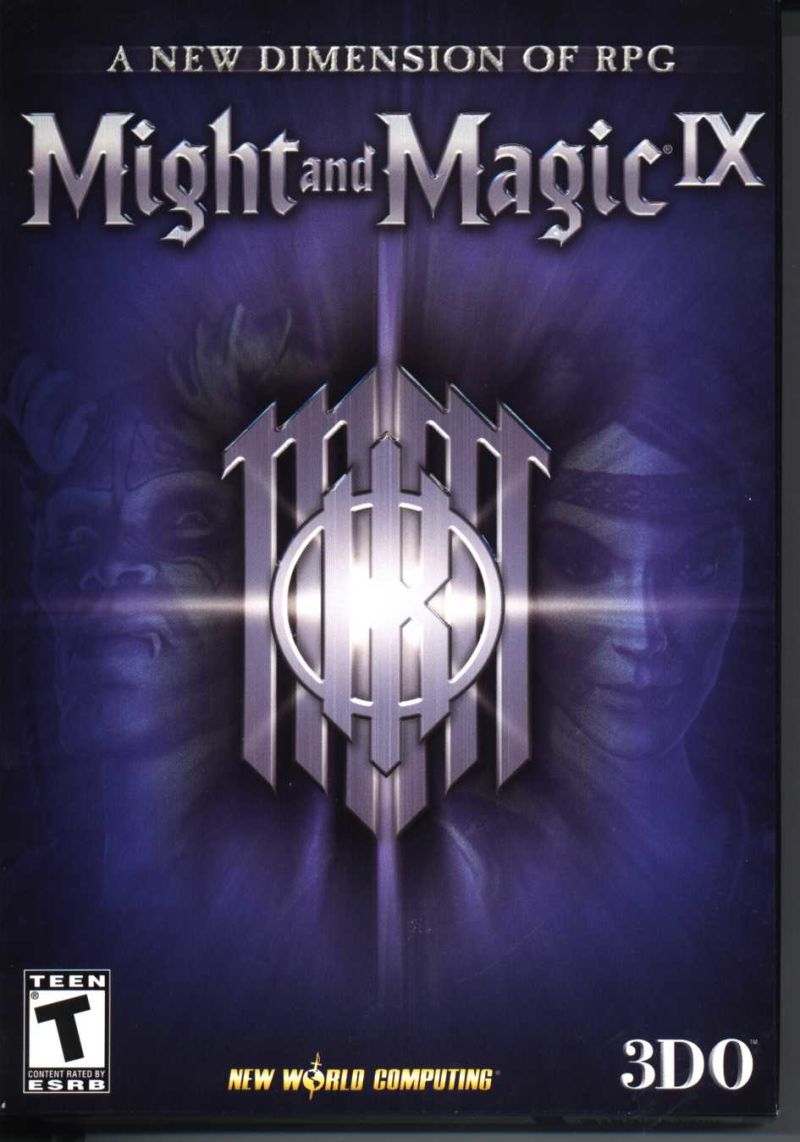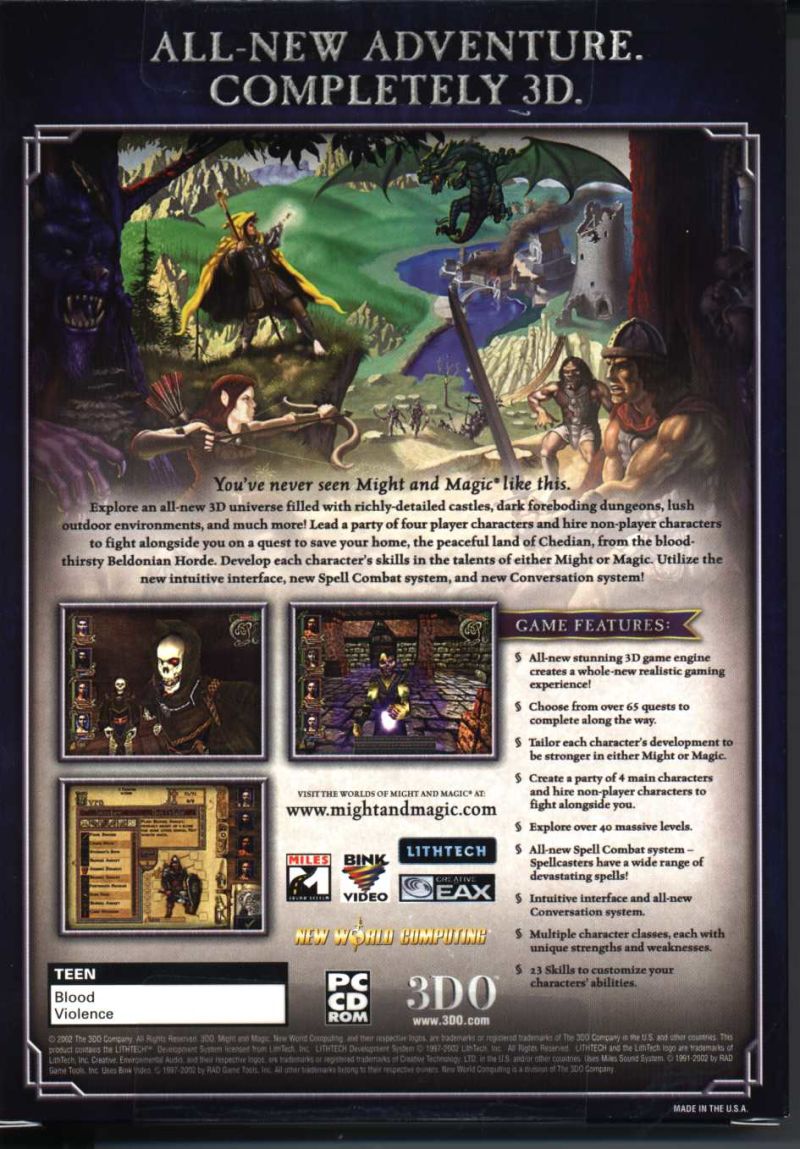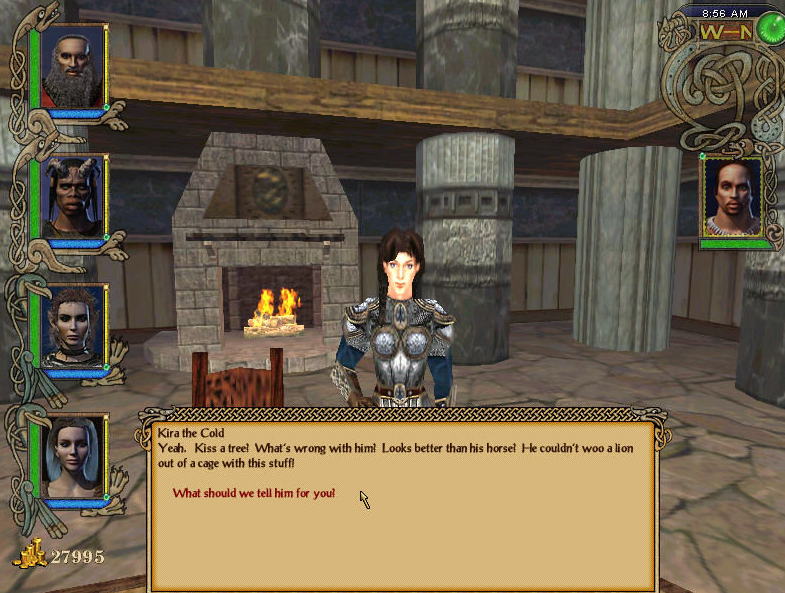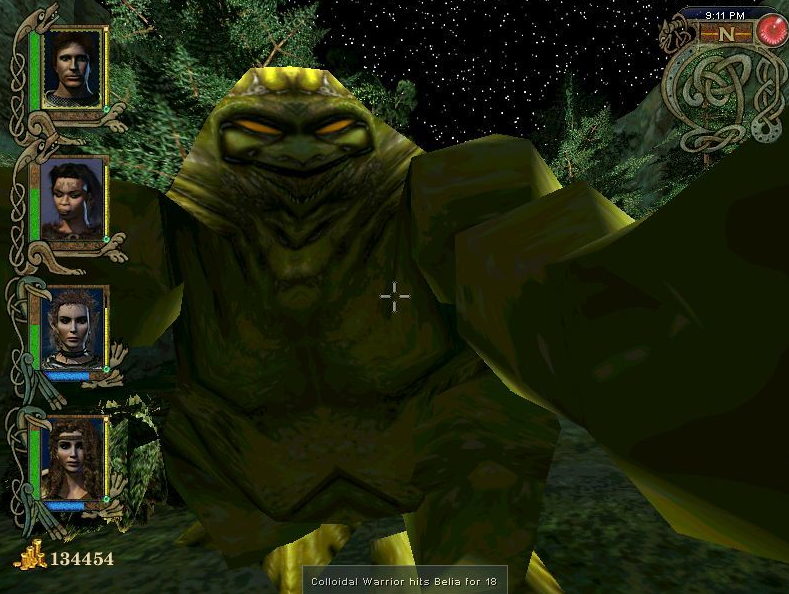The world of Axeoth seems to be in grave peril. The region of Chedian is threatened by an invasion of the Beldonian Horde, led by the warlord Tamur Leng. A party of rangers from Ravensford are shipwrecked on the Isle of Ashes, where they encounter a mysterious troll who announces to them that their fate lies in liberating Chedian and opposing the Beldonian leader.
The ninth installment of the Might and Magic series takes place in a different world, following the destruction of the planet Enroth, which served as a setting for the three previous games. Its story is not directly connected to its predecessors, though there are a few references to them. It is also the first game in the series rendered fully in 3D and with full screen navigation.
As opposed to its immediate predecessor, the game features a traditional party creation system with four races to choose from: human, elf, dwarf, and half-orc. There are only two character classes available during character creation: Fighter or Initiate. Both can, however, be promoted to other, more powerful classes during the course of the game, with two class development branches each. In order to achieve promotion, characters need to complete specific quests given to them.
Other aspects of the character-building system remain largely unchanged. Each character can train in a variety of skills, ranging from weapon proficiencies and magic disciplines to bartering, perception, identifying items, etc. Some skills bestow greater benefits on the character if he or she has been promoted to a specific class, and mastery in certain skills can only be attained following a specific promotion. As in the the three previous games in the series, default real-time combat can be paused at any time to switch to turn-based mode. Party formation options are also available.
Outdoor areas in the game are mostly limited to immediate environment of the towns, resulting in a reduced amount of outdoor exploration. Much of the game, however, takes place in the large cities as well as in dungeon-like areas. The player must complete the quests of the main story in order to finish the game, but may freely travel between any of the game’s cities and surrounding areas, tackling main and sub-quests in any order.
Cover Art:
Screenshots:





